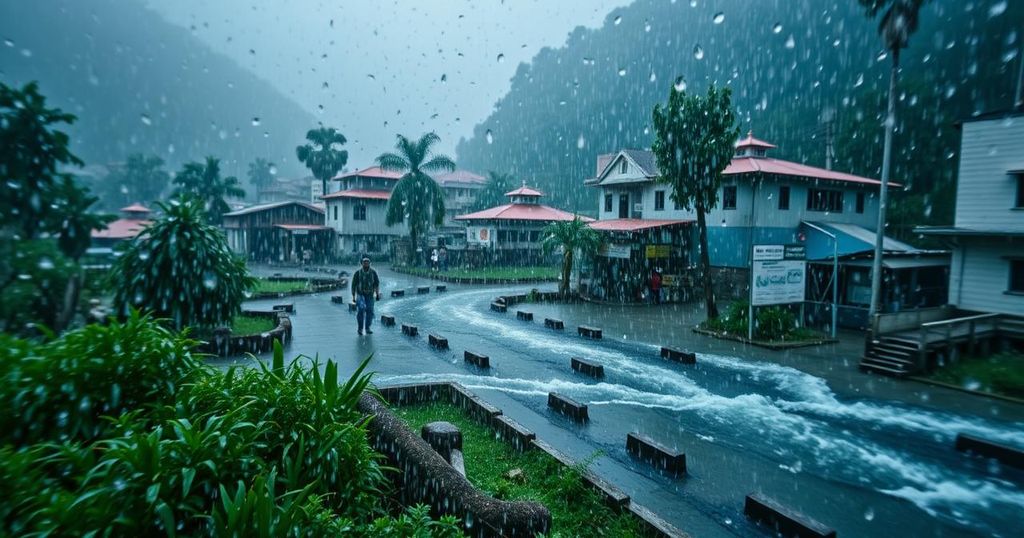Nepal’s Recent Floods Intensified by Human-Induced Climate Change, Study Reveals
A study by World Weather Attribution found that floods in Nepal, which resulted in over 240 fatalities, were intensified by human-induced climate change, making rainfall approximately 10 percent stronger. The analysis highlights the need for restricting development in flood-prone areas and implementing robust early warning systems.
A study conducted by the World Weather Attribution (WWA) has revealed that the intense rainfall which led to the catastrophic floods in Nepal at the end of September, resulting in the deaths of over 240 individuals, was approximately 10 percent intensified by anthropogenic climate change. The WWA, a collaboration of international scientists, emphasizes the urgent necessity for Nepal to restrict development in vulnerable, low-lying areas to mitigate the risk of future flooding events. The floods occurred after three consecutive days of heavy rainfall beginning September 26, during which certain weather stations in central and eastern Nepal reported over 320 mm of rainfall in a single day—September 28. This unprecedented weather led to widespread floods and landslides, predominantly affecting the Kathmandu valley and creating significant damage to infrastructure, with monetary losses estimated in billions of rupees. The analysis asserts that such extreme downpours will likely become even more severe, posing increased risks of destructive flooding unless global dependence on fossil fuels is transitioned to sustainable energy sources. Eyewitness accounts confirm that the flooding experienced in Kathmandu was unprecedented in its magnitude. The rapid urbanization and infrastructure developments in the city, particularly around the Bagmati River, have exacerbated the adverse effects of such natural disasters. The WWA researchers stress the importance of implementing development controls in identified flood-prone urban settings, advocating for enhanced early warning systems to protect communities from future disasters. The collaborative study, involving 20 researchers from various international institutions, highlights the broader implications of climate change in Asia, as similar patterns of extreme weather have been noted in recent flooding incidents across the region.
The recent floods in Nepal are part of a larger trend of increasing extreme weather events attributed to climate change. Scientists from various institutions, including the WWA, analyze how climate variability impacts the severity of phenomena such as heavy rainfall, heatwaves, and droughts. The floods that struck Nepal illustrate the immediate and deadly consequences of climate change, underscoring the need for adaptive measures in urban planning and development. The findings emphasize not only the localized impact of these events but also highlight the vulnerability of various regions across Asia to climate-induced disasters, calling for urgent action on a global scale to address root causes and mitigate risks.
In summary, the recent flooding disaster in Nepal was substantially exacerbated by human-induced climate change, leading to significantly more intense rainfall and subsequent loss of life and property. The findings from the WWA study call for proactive measures to limit development in flood-prone areas and improve disaster preparedness. The looming threat of climate change is not just an environmental concern but a pressing humanitarian issue, as demonstrated by the growing incidence of extreme weather events throughout Asia.
Original Source: www.theweek.in




Post Comment